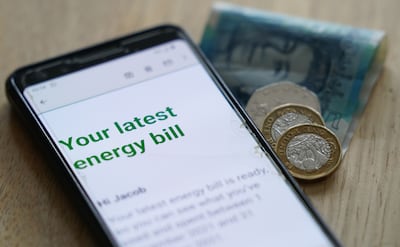British government borrowing in November reached its highest monthly level since records began in 1993, according to the Office for National Statistics.
The public sector spent more than it received in taxes and other income, meaning that it had to borrow £22 billion ($26.7 billion) to balance the monthly books in November. That was £13.9 billion more it borrowed in November 2021.
Economists had predicted a figure of £21 billion for the month, according to a consensus forecast from Pantheon Macroeconomics.
UK Chancellor Jeremy Hunt said: "Faced with the twin global emergencies of a pandemic and Putin's war in Ukraine, we have taken significant action to support millions of businesses and families here in the UK.
"We have a clear plan to help halve inflation next year, but that requires some tough decisions to put our public finances back on a sustainable footing."
Public sector total expenditure was £98.9 billion in November 2022. Within this, government day-to-day spending was £82 billion, £13.5 billion more than in November 2021, said the ONS.
Some of the extra expenditure was down to government spending on cost-of-living payments and support for household energy bills.

The interest payable on the government debt in November was £7.3 billion, which was £2.4 billion more than in November 2021 and the highest November figure since 1997.
"This Conservative government has put our economy between a rock and a hard place by failing to get inflation under control and pushing the UK's borrowing costs even higher with their catastrophic mini-budget", said Sarah Olney, the Liberal Democrats' Treasury spokeswoman.
"It's an outrage that hard-working families will be picking up the tab for their incompetence for years to come. Ministers can't use these figures as an excuse for hitting households with tax rises and cutting public services, when they caused this crisis in the first place", she added.


